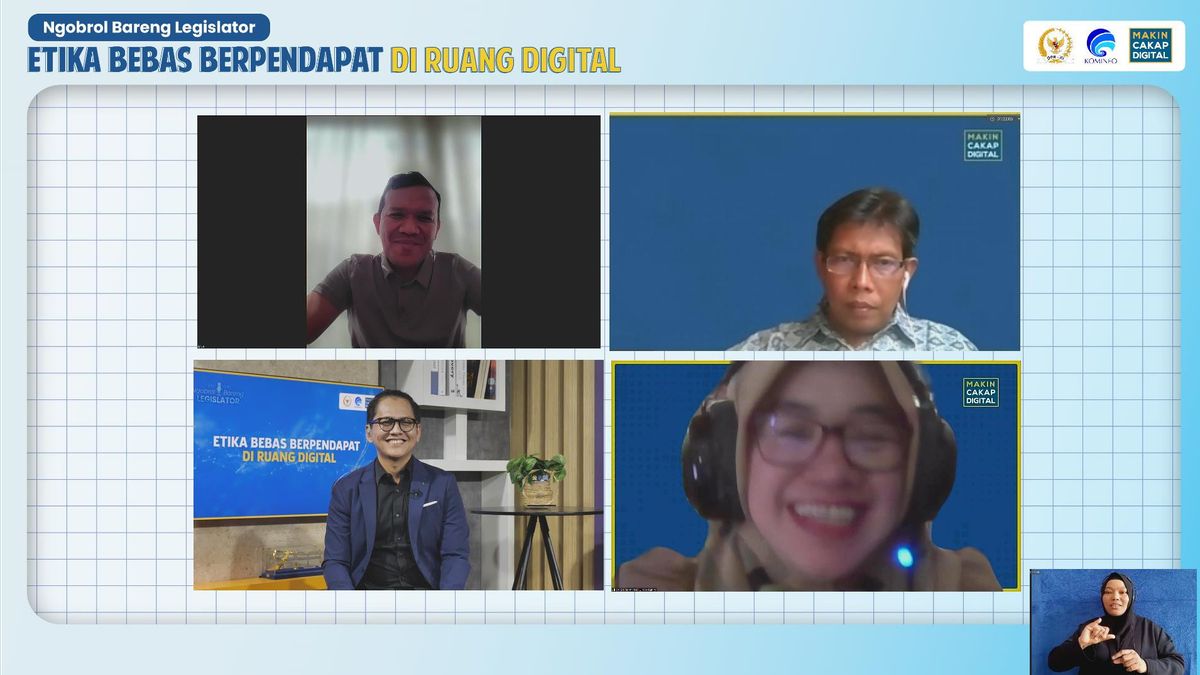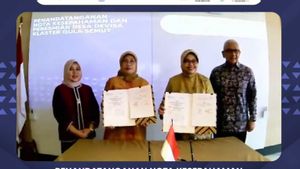JAKARTA - With a large number of internet and social media users, the number of opinions and opinions circulating is no less big. Although it has the right to express opinions, the digital community needs an ethics that can be a guide. Without heeding ethics, a person can not only harm himself, but also others.
Therefore, Kominfo and Commission I of the Indonesian House of Representatives held a Webinar Ngobrol Bareng Legislator (NGOBRAS) with the theme Free Speech In Digital Space on Saturday, May 27. This activity is even more complete with remarks from the Director General of Aptika Kominfo RI Semuel Abrijani who continues to promote digital literacy.
Member of Commission I DPR RI, Fadllullah, reminded that ethics should not only apply to digital spaces, but in various places.
"Becoming ethical and polite is part of respecting others," he explained.
Umar Mahdi as a lecturer at the Faculty of Law, Jabal University, Ghafur, said that the ethics of Indonesian citizens is closely related to the values in Pancasila, especially the 2nd precept. In the context of digital media, the ethics of freedom of opinion is limited by the Law on Information and Electronic Transactions.
On the other hand, Umar Mahdi said freedom of opinion is guaranteed in the Law and Human Rights. However, the submission of this opinion must pay attention to religious values, decency, order, public interest, and national integrity.
In the context of digital space, there are potential hoax news, hate speech, SARA, and personal data leakage. Generally, a new person can be prosecuted if there are complaints for the context of hate speech. However, this is different when it comes to state symbols, such as flags and Garuda Pancasila birds.
He said there were many cases of insult and defamation that had occurred in cyberspace. Digital forensic techniques can be used as evidence of digital traces of suspected defamation cases.
Sri Rahmi, Lecturer at UIN Ar-Raniry Banda Aceh, said that the digital era can be a place to hone public communication skills. Communication ethics are crucial because they can form public opinion, build intentions and encourage someone's actions. Meanwhile, Sri Rahmi also mentions the existence of digital ethics which is an individual ability to manage digital behavior in everyday life.
また読む:
With this ethics, acts of online bullying, fake news, harassment and hate speech can slowly decrease. Digital ethics is an inseparable part of 4 pillars of digital literacy, namely digital ability, digital ethics, digital security, and digital culture.
Sri Rahmi provides tips that can be used to fight negative content. First, filter useful information. Second, differentiate motivation and seek information first.
Third, controlling the desire to access information. Finally, not accessing information that harms yourself and others.
The English, Chinese, Japanese, Arabic, and French versions are automatically generated by the AI. So there may still be inaccuracies in translating, please always see Indonesian as our main language. (system supported by DigitalSiber.id)
















